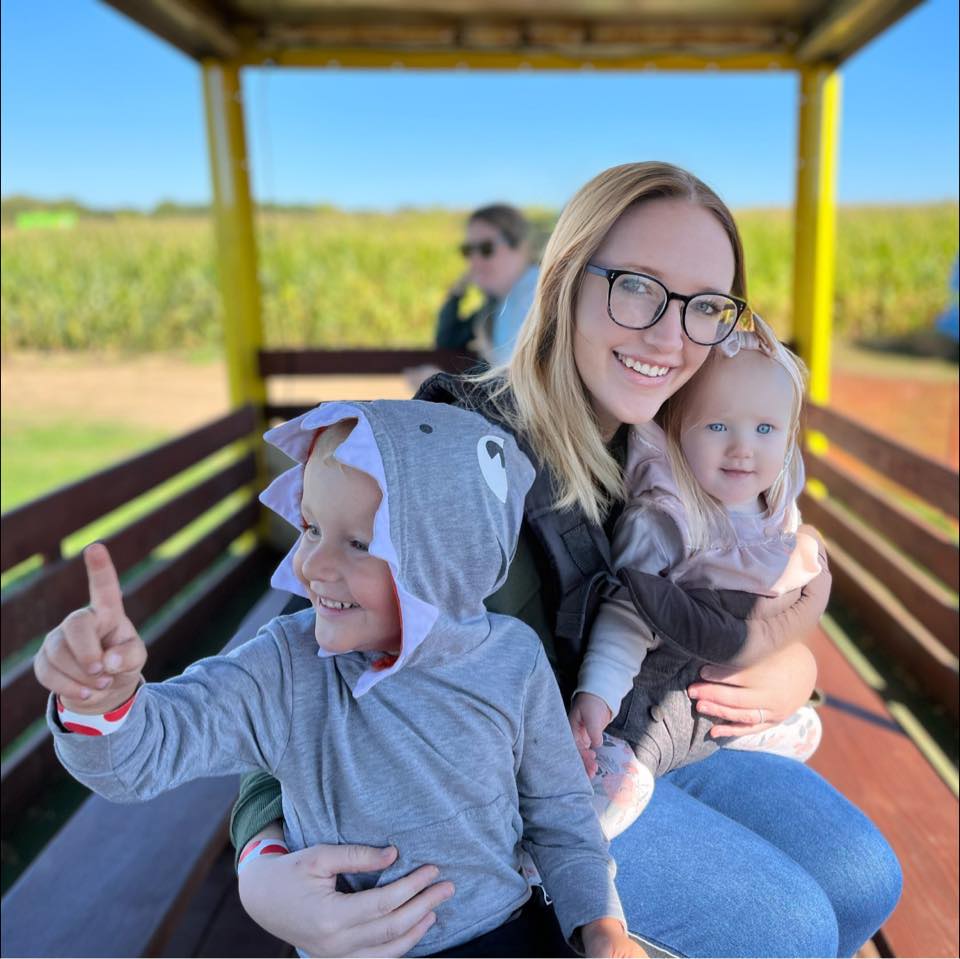
Before my own son was born with hearing loss, I did not know much about how the ears worked. As it turns out, most people don't understand hearing loss – even medical professionals.
At Max's three-month checkup – after his ABR and before we received his hearing aids – his pediatrician turned to leave the room but paused for a moment. She clapped her hands and loudly exclaimed: “BYE, MAXWELL!”
Max and I both startled at the sudden noise, and the pediatrician noticed.
“See, he can hear just fine,” she said with a wink as she walked out the door.
At his next appointment, she again hinted that his hearing was fine and that he would "grow out" of his hearing aids.
I explained that his hearing loss was most likely permanent and that he may “grow out” of the hearing aids some day, but right now they are critical to help him develop language. She shrugged and told me she had seen bigger miracles in her career.
If that encounter had happened today – now that I have several years of experience as an advocate for Max and his hearing loss – I would have used the exchange as a teaching moment. I would have explained the importance of recognizing hearing loss and the impact even mild losses can have on brain function.
Instead, I turned to a Facebook community for parents with hearing loss for reassurance that I was not overreacting about the situation.
More than 50 parents commented on my post, many sharing their own similar experiences. One mom shared that her child's doctor refused to provide a referral to audiologist or ENT, meaning that her insurance would not cover the specialty visits. Another shared that a teacher would continuously lower her voice during parent-teacher conferences to a whisper, just to see if her kid was “faking it.”
Most comments encouraged me to find a new pediatrician. As someone who has always avoided conflict, the thought of asking for a new doctor made me anxious.
But a few weeks later, we returned to the pediatrician's office with an ear infection. A new doctor was working the acute clinic that day, and he paused before looking in Max's ear.
“I need to be honest, I've never treated a child with hearing aids. Is there anything I should know before the exam? Does he need any special accommodations because of his hearing loss?”
By admitting that he did not have much experience or knowledge about hearing loss, he gained my trust immediately.
After seeing a clearly infected ear and prescribing the necessary antibiotics, the doctor asked if I had any more questions: “Yes, are you accepting new patients?”
On the way out of the office, I stopped at the front desk and asked to be transferred to the new doctor. While it may not have counted as a dramatic “firing,” it was the first time I stepped out of my own comfort zone to advocate for my son. I know it won't be the last.
When Max caught the flu and ended up with another ear infection this year, we visited the pediatrician. His ear was hurting too much to wear his hearing aids, so it was the first time the doctor had interacted with Max without technology. When Max answered a question himself, his doctor turned to me with a surprised face and asked with genuine curiosity: “He heard that? What kind of sounds can he hear on his own?"
I pulled up Max's audiogram on my phone and showed him that his loss means he can hear most sounds, but loses some of the most important language noises. I was so grateful for the exchange and the opportunity to help a medical professional better understand hearing loss. Although his audiogram is now complete – we have charted his loss through years of various testing – there are still things I do not understand about Max's hearing loss. I'm still baffled when Max wakes up from a deep sleep to the sound of his dad fluffing his pillow downstairs, yet sleeps through a blaring fire alarm.
I'm still learning, and I encourage everyone in Max's life to do the same. I love answering questions about Max's hearing loss and how he is experiencing the world.
But please, don't "test" his hearing. We have an audiologist for that.
